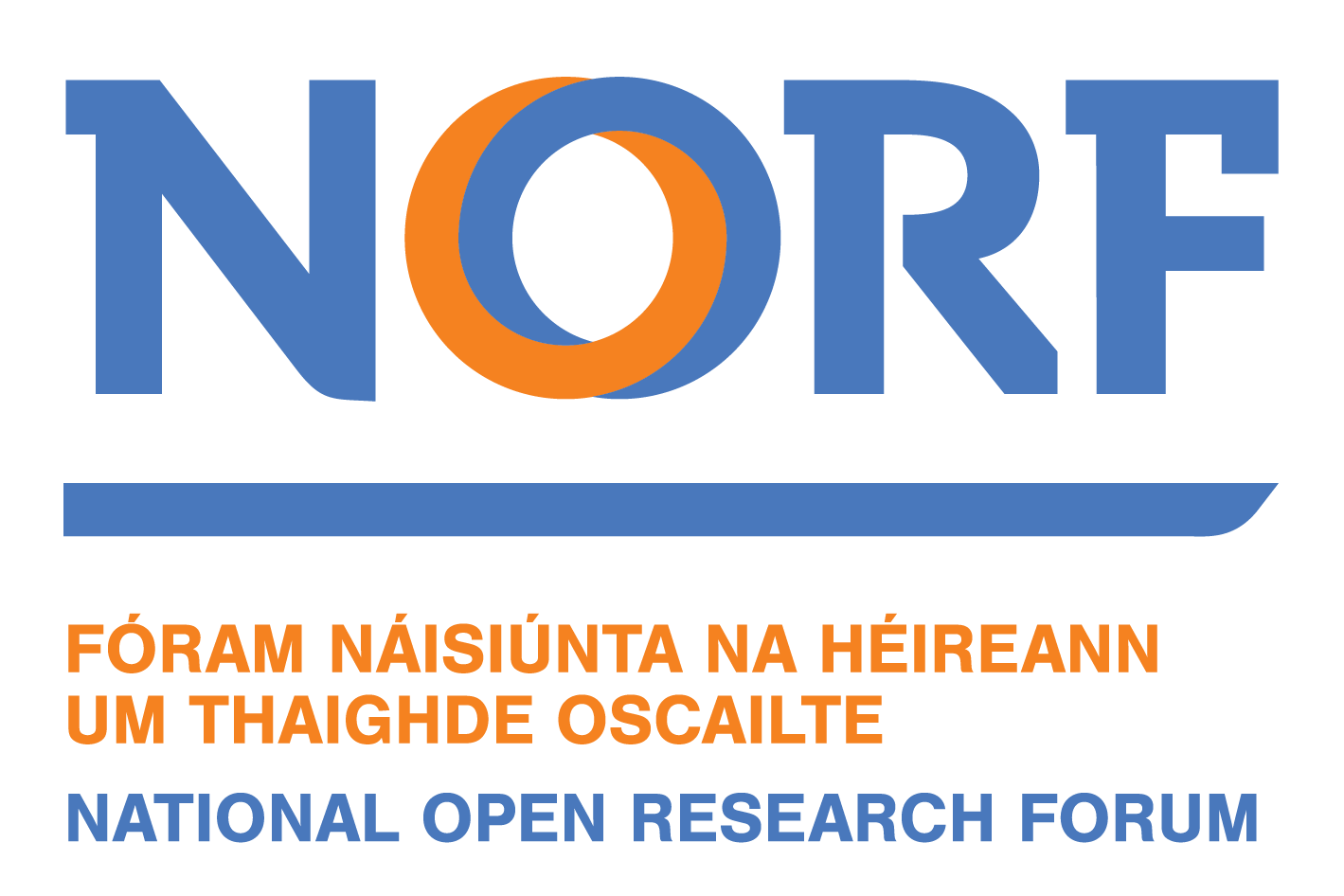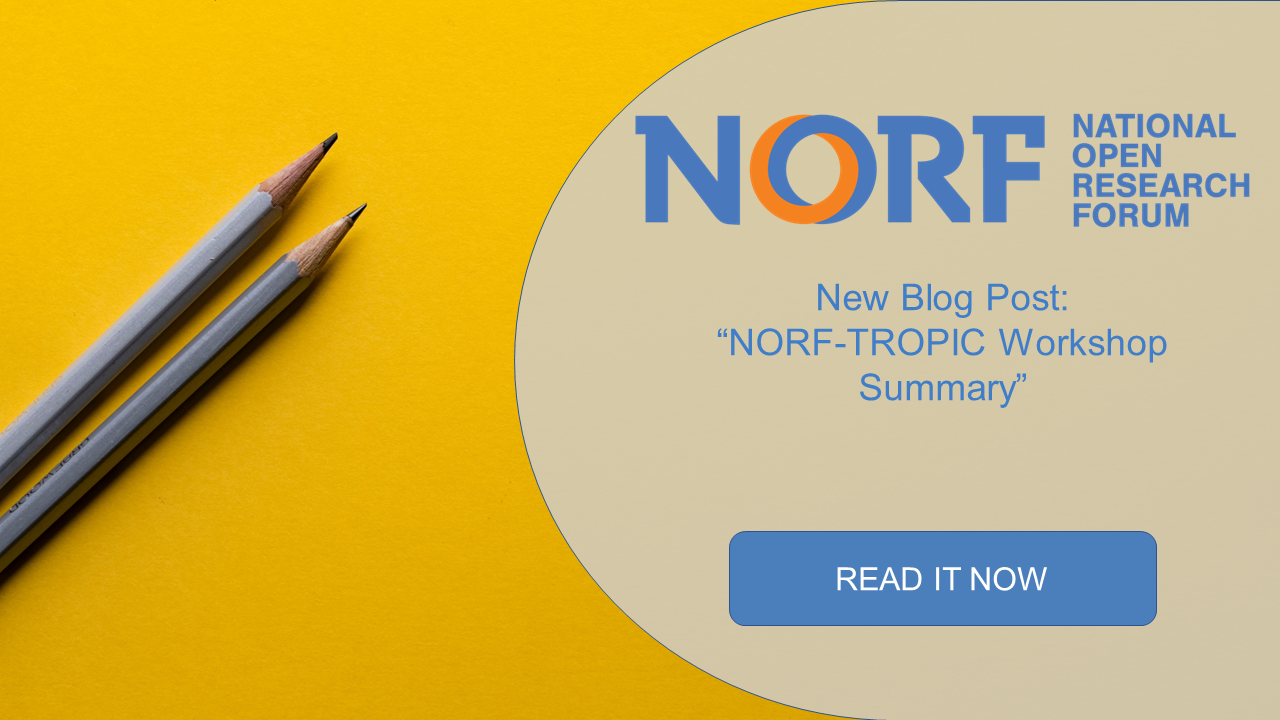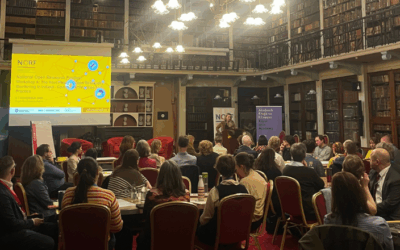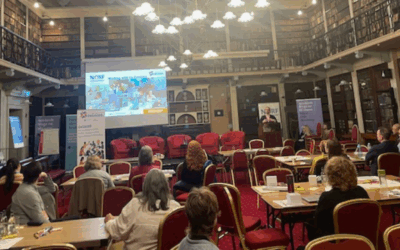On Friday 22 September 2023, we had the privilege of organising a full-day workshop on Open Science Practices at Maynooth University. The primary objective of the event was to foster connections, expand our open research networks, develop ideas for open research training, and exchange ideas on the best way to promote Open Science. The following is an account of the day. All materials mentioned are accessible through the project’s OSF page.
Dr. Dounia Lakhzoum, Postdoctoral Researcher, Maynooth University.
Morning Sessions: Setting the Stage
The workshop kicked off with Dr. Dermot Lynott’s introductory remarks, outlining the overarching goals of the training program. The main objective of the project is to develop and pilot a national open research training programme that will upskill researchers in the fundamentals of open research practices.
Dr. Karen Matvienko-Sikar (Lecturer in Public Health, HRB Senior Research Fellow in University College Cork) followed with an introduction to the “Principles and Practices of Open Research” (PaPOR TRaIL) course. This comprehensive course covers various aspects of Open Research, including research integrity, pre-registration, research and data management, reproducible practices, open reporting, and knowledge dissemination. An important strength of the course lies in its flexibility where students can pick and choose training modules as well as formats, including slides, video recordings, and activities. The course received rave reviews from students, and it could serve as an excellent example in developing our own training program.
I then presented the preliminary results of the TROPIC survey which unveiled some noteworthy patterns. Despite limited time, resources, and funds, researchers remain committed to implementing open research practices. Practices that showed the most engagement were Open Access, Open Data and Preprints. In other words, all practices that are part of the publication ecosystem, emphasising the importance of incentives and recognition from the broader research ecosystem. An awareness-engagement gap was also identified showing that being aware of a practice is no guarantee of implementation. For instance, there exists a 40% gap between awareness of Preprints (93%) as a practice and their implementation (53%). This highlights the need to focus on practical skills in training. Participants expressed a preference for a hybrid approach to training, favouring a guided portfolio for assessment. This approach ensures that trainees acquire practical, identifiable skills—a critical component in bridging the gap between awareness and implementation.
Niamh Brennan (Programme Manager for Research Informatics in Trinity College Library Dublin) introduced Pattern: a program which aims to promote the practice of Open and Responsible Research and Innovation (Open RRI) by developing and piloting training activities for researchers, further emphasising the importance of structured training and the need to strengthen relationships between librarian, research support and academic roles.
Afternoon Sessions: Bugbears and practical skills
During the afternoon session, participants were encouraged to share their “bugbears” about Open Research, resulting in some cathartic discussions. One common theme that emerged was frustration over a perceived lack of genuine engagement in open science, as well as insufficient funding and recognition from funders and institutions.
In group discussions, participants collaboratively generated a list of essential practical skills that researchers should acquire through training. The list spanned various stages of the research process, including research integrity, research planning, data collection, data analysis, research data management (RDM), and reporting and dissemination.
Armin Straube (Research Data Manager, University of Limerick) introduced the Library Carpentry Online courses, hosted on GitHub and easily convertible into a user-friendly website. This innovative approach provides a potential solution for the sustainability challenges that have impacted previous training programmes, and also an issue we must consider for the long-term viability of the TROPIC programme.
Building Networks
The workshop also revealed an important insight: many participants were already involved in open research organisations, often unbeknownst to others. This underscored the critical role of building a network to prevent duplication of efforts and ensure that open research initiatives are not overlooked. Consequently, we plan to compile a list of these networks and actively encourage connections among these various organisations.
Afterword
In conclusion, the workshop on Open Science Practices was a productive and enlightening event. It provided a platform for networking, sharing experiences, and brainstorming solutions to challenges in the world of open research. We are grateful to all participants for their valuable contributions, and we look forward to continuing our journey toward a more open and collaborative research landscape in Ireland.




